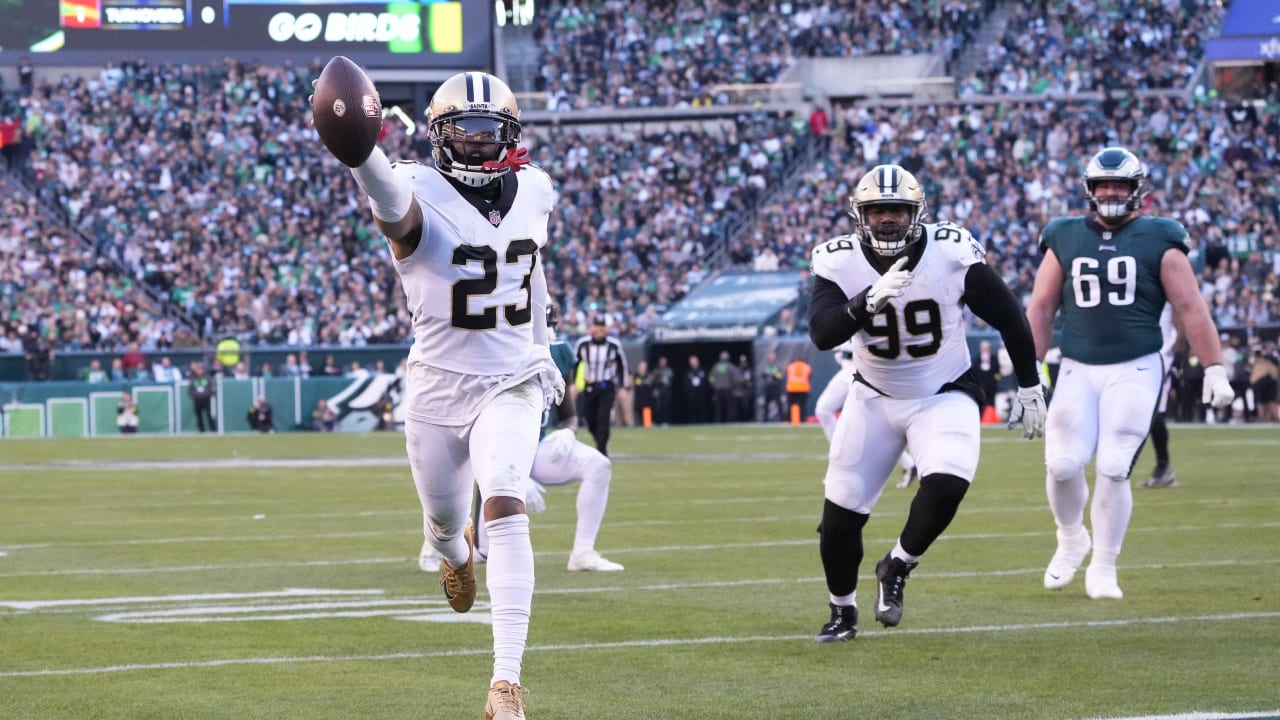
The recent trade of L’Jarius Sneed from the Kansas City Chiefs to the Tennessee Titans has sent ripples through the NFL, particularly for the New Orleans Saints. This transaction, which saw the star cornerback moved for a 2025 third-round pick alongside a swap of seventh-round selections, essentially values the third-rounder as a 2024 fourth-round pick when considering the league’s appraisal of future draft picks. This valuation could set a precedent that spells concern for the Saints, especially if they were contemplating trading Marshon Lattimore, their game-changing cornerback.
Lattimore, who boasts an impressive skill set and three more years of an advantageous contract, might have seen his market value indirectly affected by the Sneed trade. At best, the cornerback market appears tepid, complicating any potential moves the Saints could consider. Trading Lattimore before June 1 would impose a staggering $31.2 million in dead money against the team’s salary cap—a formidable obstacle even for a team willing to navigate financial gymnastics for long-term benefits. Such a scenario would be a transaction and a significant strategic pivot, requiring the Saints to weigh the merits of relinquishing their top defensive asset against the potential gains of acquiring future draft capital.
The predicament for New Orleans doesn’t end there. Convincing another team to offer a deal that justifies absorbing such a financial blow would be crucial. The return of a third-round pick in the immediate or following year hardly seems compelling enough incentive to undertake the substantial fiscal and strategic costs involved. This situation places the Saints in a delicate position, compelling them to either hold onto Lattimore amidst an undervaluing cornerback market or seek out a trade partner willing to offer a deal so beneficial that it offsets the considerable financial and roster implications.
Post-June 1st, the financial landscape for the team shifts considerably, offering a pathway to distribute the cap charge over two years—$10.6 million in the current year and $20.6 million in the following. This maneuver grants the team enhanced fiscal maneuverability, potentially making a trade more palatable. Yet, even with this added flexibility, the prospect of merely acquiring a future third-round pick as compensation for a player of Marshon Lattimore’s caliber seems underwhelming, barring any internal discord necessitating his departure. However, no public evidence suggests such a fractious relationship exists between Lattimore and the team.
Evaluating the worth of Lattimore versus L’Jarius Sneed invites a nuanced comparison. Both athletes, at 27, stand out in their profession. Yet, their career trajectories diverge in terms of availability and accolades. Lattimore has been sidelined for 17 games across the past two seasons, a stark contrast to Sneed’s singular missed game. Additionally, Lattimore’s four Pro Bowl nods underscore a recognition that Sneed has yet to achieve.
Beyond their on-field contributions, the financial implications of trading Lattimore reveal a compelling proposition for potential suitors. The team acquiring Lattimore would absorb a contract totaling $15 million this year, with subsequent salaries of $18 million and $18.5 million over the following two years. At an average annual value of $17.2 million, Lattimore’s contract ranks as the ninth-highest among league cornerbacks—a bargain compared to Sneed’s recent contract reported by Bleacher Report’s Jordan Schultz, which averages $19 million annually over four years, with $55 million guaranteed.
While both players bring considerable talent to the table, Lattimore’s combination of proven performance and comparatively cost-effective contract might just position him as the more valuable asset, assuming the Saints are contemplating a trade.
The other thing that hurts is that recent cornerback trades haven’t netted much return. We can probably throw out the Rasul Douglas trade because he’s not in the same conversation as Lattimore and Sneed. But the Rams traded Jalen Ramsey last year for a third-round pick and Hunter Long. The tight end has one career catch for eight yards. He ended last year on injured reserve due to an MCL injury.
Lattimore might be better right now than Ramsey was last year, but there isn’t enough distance to toss that comp out the window when discussing a trade. And even if there is a difference, the gap is closed due to Lattimore missing so much time the last two years with ankle and kidney injuries.
Right now, the market rate for a good cornerback is a third-round pick, which is wild because it was so much stronger a few years ago when the Saints traded a third for Bradley Roby in 2021, one year after Gareon Conley was sent to Houston for a third and two years after Ramsey was dealt to the Rams for two firsts and a fourth.
You’d like to consider the 2018 trade in which Kansas City traded Marcus Peters to the Rams for a second and a fourth as a good comp for Lattimore, but it seems like that might now be a stretch.
If the Saints cannot secure a trade package of significant value — at the very least, a second-round pick — parting ways with Marshon Lattimore hardly seems prudent. With three years remaining on his contract, trading him for anything less would not be a move predicated on extracting optimal value or ensuring a beneficial return. The caliber of the asset received in exchange diminishes in potential impact the further down the draft order it falls, reducing the likelihood of acquiring a player who can contribute meaningfully to the team’s long-term success.
The recent trade activity within the league only underscores the advantageous position the Saints find themselves in should they manage to reconcile and retain Lattimore. In a market that currently does not favor sellers, the Saints stand to benefit significantly from smoothing over any wrinkles and ensuring Lattimore remains a cornerstone of their defense. The dynamics of the current trade environment highlight the value of stability and the strategic advantage of holding onto proven talent, especially when the market conditions are less than favorable for negotiating high-value trades.
Show Your Support
Support the great work of the Strike 7 Sports Saints Discussions Section by purchasing licensed NFL fan gear. Items ranged from Saints hats, jerseys, t-shirts, socks, and more. We would greatly appreciate it if you would buy these items from the text link listed below. The revenue generated from today’s offer goes into the funding of the Strike 7 Sports platform. Click on the link below if you are interested.
New Orleans Saints Fan Gear Deals at Fanatics









